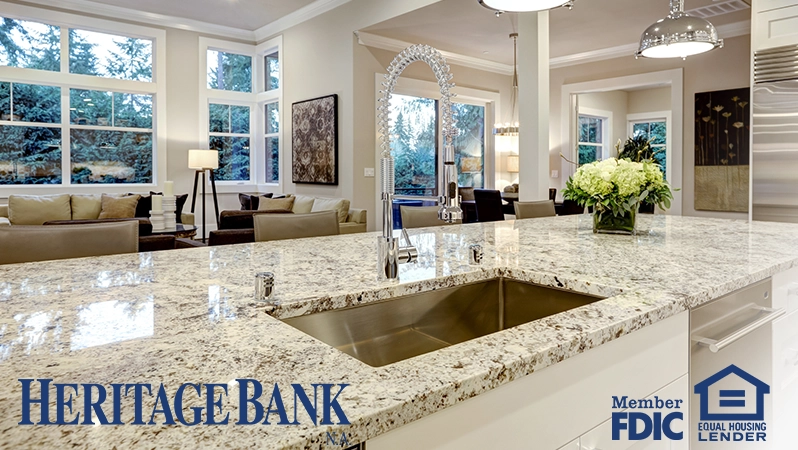Buying a home in Minnesota involves several financial decisions that can significantly impact your purchasing power and overall experience. Chris Vraa covers all these key topics in detail during the latest segment of KWLM’s ‘Ask the Expert,’ providing valuable insights to guide you through the process. Understanding your financing options before you start house hunting will help you navigate the competitive Minnesota housing market with confidence and clarity.
The home-buying process becomes much smoother when you have a solid grasp of mortgage basics, required documentation, and the various loan programs available to Minnesota residents. This guide provides essential financing information that every Minnesota homebuyer should know.
Pre-Approval vs Pre-Qualification for Home Loans in Minnesota
Many homebuyers confuse pre-qualification with pre-approval, but these two processes serve different purposes in your home-buying journey.
Pre-qualification provides a rough estimate of how much you might be able to borrow based on basic financial information you provide to a lender. This informal assessment does not require documentation verification and won’t guarantee loan approval.
Pre-approval, however, involves a thorough review of your financial situation. Lenders verify your income, assets, credit history, and employment status before issuing a pre-approval letter. This document demonstrates to sellers that you are a serious buyer with confirmed financing capability.
To get pre-approved for a home loan in Minnesota, you will need to submit several documents, including recent pay stubs, tax returns (only if self-employed), bank statements, and a driver’s license. The lender will also run a credit check and evaluate your debt-to-income ratio.
Best Mortgage Options for First-Time Homebuyers in Rural Minnesota
First-time homebuyers in rural Minnesota have access to several advantageous loan programs designed to make homeownership more affordable.
USDA Rural Development loans offer some of the most attractive terms for eligible properties in rural areas. These loans require no down payment and feature competitive interest rates. FHA loans represent another excellent option for first-time buyers, requiring just 3.5% down and accepting credit scores as low as 580. These loans work well for buyers who may not qualify for conventional financing but don’t meet USDA rural property requirements.
Conventional loans with low down payment options (3% down) are available for qualified buyers and don’t carry the upfront mortgage insurance premium required by FHA loans.
VA loans provide unmatched benefits, including no down payment requirement, no private mortgage insurance, competitive interest rates, and more flexible credit requirements. Veterans can use their VA loan benefit multiple times and may be eligible for cash-out refinancing options.
VA Loan vs Conventional Loan for Minnesota Veterans
While VA loans offer their distinct advantages for the veteran, it may not always be the best choice. VA loans offer no down payment; however, they typically require a funding fee to be added on top of the loan, which increases your loan amount at inception.
- First-time user is 2.15% of the purchase price
- Subsequent user is 3.3% of the purchase price
Note: if you are a disabled veteran, this funding fee may be waived.
Conventional loans might be preferable when you have a down payment, the home price exceeds VA loan limits in your county, when you want to purchase an investment property, or when interest rates on conventional loans are significantly lower than VA rates.
The decision often comes down to your specific financial situation and the property you are purchasing. VA loans excel for primary residences within loan limits, while conventional loans offer more flexibility for different property types.
What Documents do I need for a Home Loan in Minnesota?
Gathering the correct documentation early in the process will expedite your loan approval. Minnesota lenders typically require:
Income Documentation:
- Two years of tax returns with all schedules (if self-employed)
- Recent pay stubs covering 30 days
- W-2 forms for the past two years
- Profit and loss statements (if self-employed)
Asset Documentation:
- Bank statements for all accounts (2-3 months)
- Investment/Retirement account statements
- Documentation of gift funds (if applicable)
Additional Requirements:
- Valid driver’s license
- Social Security card
- Explanation letters for any credit issues
Having these documents organized and readily available will help your lender process your application efficiently.
How Much Earnest Money Should I Offer on a House in Minnesota?
Earnest money demonstrates your commitment to purchasing the home and protects the seller if you back out without valid cause.
In Minnesota’s current market, earnest money typically ranges from 1% to 3% of the purchase price. Competitive markets may require higher amounts to make your offer stand out.
The amount of earnest money can influence how sellers perceive your offer. A substantial earnest money deposit signals serious intent and financial capability, potentially giving you a competitive edge over other offers.
Your earnest money will be held in escrow and applied toward your down payment and closing costs at closing, assuming the transaction proceeds smoothly.
Take the Next Step Toward Homeownership
Understanding these financing fundamentals positions you for success in Minnesota’s housing market. Each buyer’s situation is unique, and working with experienced professionals ensures you choose the best financing strategy for your circumstances.
Ready to explore your home financing options? Contact our mortgage specialists for a personalized consultation. We will review your financial situation, discuss available loan programs, and help you get pre-approved, allowing you to shop with confidence.
Helping People Succeed Financially. We see every customer as an individual and treat our customers’ businesses as our own. Our dedicated, experienced staff is there for our customers on every step of their journey.






